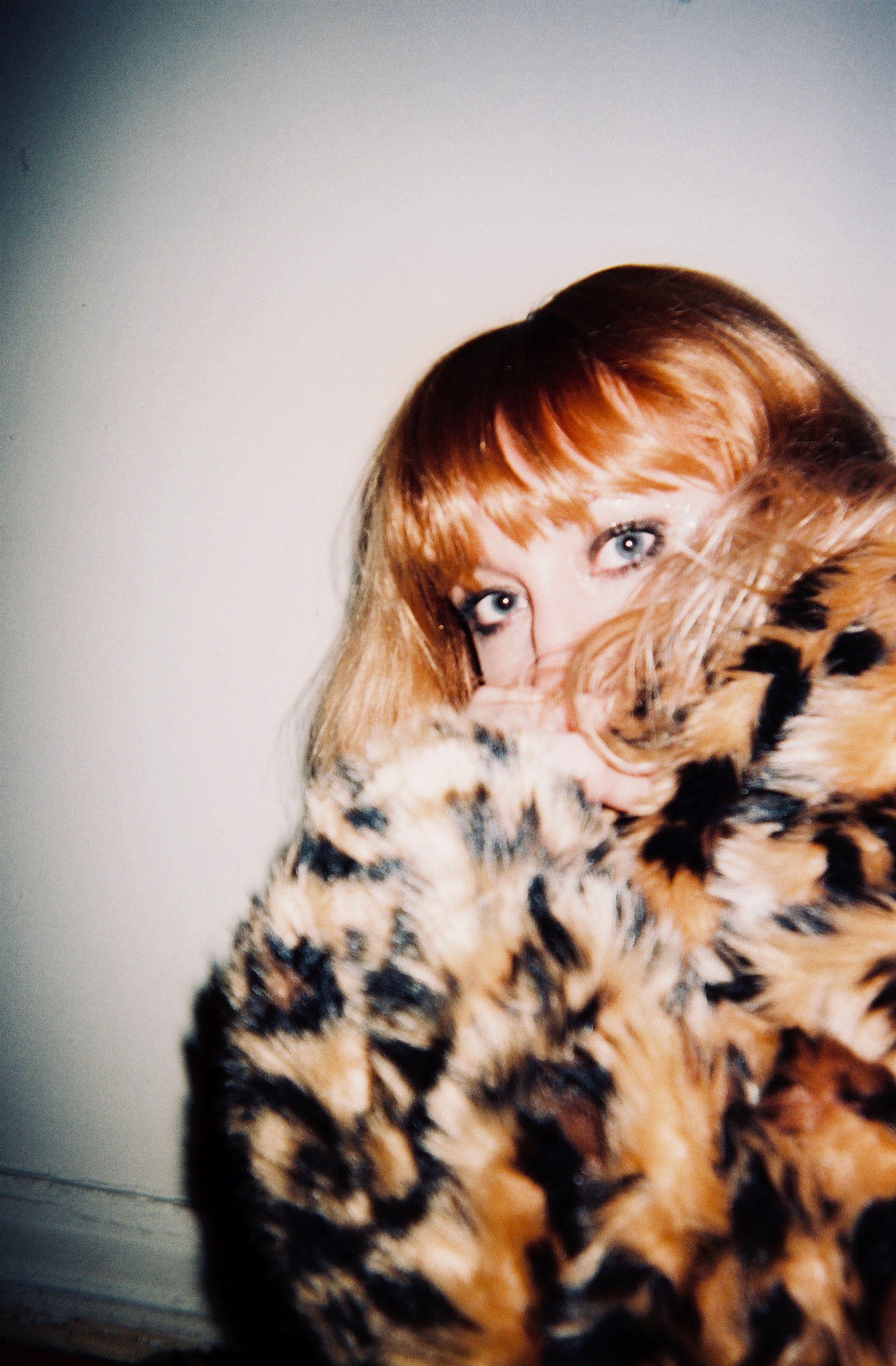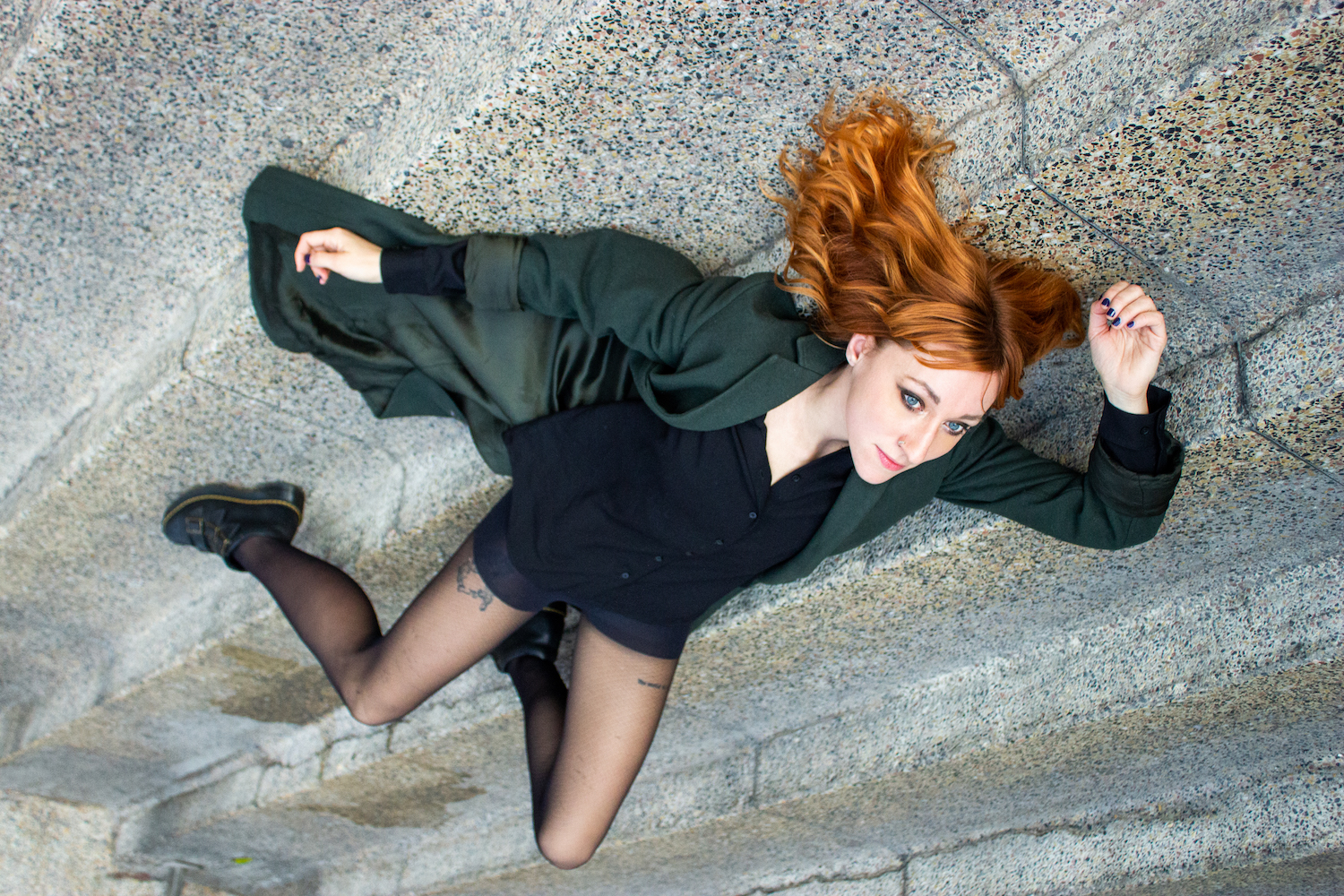
Many of us escape to some iteration of Gotham City when we feel like indulging in the deranged. (Or depending on who is directing the Batman of our choosing, the manically absurd.) But what if you were born and bred into “a real life Gotham City? Such is the case for singer Lauren Lakis.
“I never realized that growing up with such darkness wasn’t a normal experience for other people, until after I left. There is a lot of trauma that I still contend with on a cellular and subconscious level, as a result of having grown up there.”
Says Lakis of her hometown of Baltimore. Her new single titled “We’ll Be Fine” is the embodiment of this gloom that the artist is seeking to contend with. The music churns, aggressive and insular as the rumblings of a city cloaked in fog and mischief. Lauren’s voice sears through the haze like the sharp towers of industry as her secrets escape her like the steam of a dark alleyway seducing those passing by on the wet streets.
“I tend to be drawn to people who have touched ‘the bottom’ and have come back up to the surface.”
We caught up with Lauren to ask her what connects her to people that have “faced their shadow” and if we will in fact, be fine…
“We’ll Be Fine” is a bit of a juxtaposition to the foreboding sound of the EP. Was their intention in that or is the title drawn from something else entirely?
There’s never really a preconceived idea of the style of song I want to write as I go into writing; I just allow whatever wants to come through. The transition between albums was never planned, I think it is a direct reflection of my influences at the time as well as my song-writing trajectory. Ferocious was very raw, with jangly guitars, and a lot of fire in the lyrics. It was catharsis for the most intense grieving period I’ve ever experienced. The follow-up EP Sad Girl Breakfast took on a more down tempo, electronic vibe, thematically musing on existential thoughts…and this newest record Daughter Language, makes yet another sonic jump…bigger drums, bigger guitars, everything about it is more expansive.
Each record, each song really, is a snapshot of a moment in time…the inspiration just kind of comes and the songs write themselves. Once we’re in the tracking stage I make a lot of decisions as far as production sounds, but even then, the choices are usually obvious.
Speaking to that and the volatile nature of 2020, do you think we will be fine?
I think that everything we’ve seen happen is necessary for humanity to move forward, especially the BLM movement. I apologize for this super gross analogy, but I keep thinking of America as having had a pimple festering under the skin for many years, and right now it feels like the pimple has popped, and all that puss and nastiness is exposed and sitting on the surface, and we all have to look at it, and it’s not pretty. But it’s always been there, lurking under the surface. So now we have to work on cleaning the wound, and healing.
As challenging as quarantine has been, it’s also an incredible opportunity, the Great Pause. When have we ever had the chance to stop and reflect like this? This gift of time has allowed me to do tremendous inner work, and has made me grateful for the smallest things. I appreciate tiny moments of connection with another human beings. My hope is that I’m not the only one who has experienced this.
Quarantine probably helped to spur the BLM movement, seeing as we collectively only have time to reflect and feel, with hearts open. We have the time to spend our days coming together, and that’s a beautiful thing. Nothing has made me happier than seeing thousands of people brave virus fears and come together regardless. Witnessing that gives me hope that yes, we will be fine.
How much do you feel like your home city of Baltimore plays a role in your music? If so, what elements do you think come through?
Baltimore City has played a huge role in my music and the aesthetic/art I’m drawn to. It’s a very dark place, like a real life Gotham City. I’ve been robbed at gunpoint, family members have been mugged and carjacked, and I’ve witnessed countless friends and family members succumb to drugs. I never realized that growing up with such darkness wasn’t a normal experience for other people, until after I left. There is a lot of trauma that I still contend with on a cellular and subconscious level, as a result of having grown up there.
A lot of this upcoming album, Daughter Language, is about navigating internalized trauma and the way it’s influenced the way I relate to other people and the world as a whole. And all of those issues first took hold during my childhood in Baltimore.
I like art that is raw, real, and not overly polished. Authentic, unafraid to be ugly and imperfect. I tend to be drawn to people who have touched “the bottom” and have come back up to the surface…people who have faced their shadow. I embrace the dark because without it, there would be no light. I think this all comes through in my music.

What was your writing process like for “We’ll Be Fine”? Do you write everything yourself or do you have a band that you produce with?
We’ll Be Fine was written in two parts, a few months apart. I was having a particularly sad day when I first started writing it…it was at a time when my partner and I weren’t speaking. I’m pretty sure I was sitting in my room with all the blinds shut, pants-less. Ha ha. Fast forward to the day I decided to finish it…I had an upcoming meeting with a producer I respected immensely, and I felt compelled to finish up demos to take in to our meeting together. I was feeling excited, inspired, and grateful, and voila! The second half of the song came to fruition. The finished track has two very defined parts as a result.
I write everything myself. Most songs start out as guitar and vocals in a voice memo. I can often hear what the drum beat should be, and my guitar parts are often rhythmic enough to where my drummer knows exactly what I’m trying to do.
My producer, Billy Burke, also likes to chop up and produce the voice memos I send him. He’s kind of a whiz on Ableton. You’ll be able to hear this most prominently on a couple of tracks on the upcoming record, Turn To Dust and Run To You.
As far as songs go, do the lyrics or the music come first?
The music always comes first – usually I’ll start with a basic chord structure and then hear the vocal melodies – sometimes the words come through in the moment, and sometimes I hear specific syllables and just sing gibberish, filling in the words later. There are some songs like “Right Now” where the lyrics come tumbling out immediately in the moment…it’s such a gift when it happens like that. That’s when it feels like channelling from a higher realm, like I’m serving as a conduit for the song to come through.
The songs have a propulsive nature but are still very vocally/melodically driven… Who are the singers that inspired you to find your own voice and have it remain a driving force in your music?
Oh wow…there are so many! Elizabeth Powell of Land of Talk is the master of interesting vocal melodies in my opinion…there isn’t a song of hers that I skip! She’s so creative with her guitar and vocal melodies, and so grounded. Some of my earliest influences include Fiona Apple, Courtney Love, Shirley Manson, and Chan Marshall of Cat Power…and some of the more contemporary singers I’ve been singing along to lately include Sharon Van Etten, Alice Phoebe Lou, and Ellie Rowsell of Wolf Alice.
Has there been any art that has kept you inspired during quarantine?
So I started out as a photographer in high school, shooting exclusively on film. I thought I was going to devote my life to that medium, but it didn’t quite work out that way and I moved to LA to become a performer instead…however during this quarantine I bought the same 35mm Minolta camera I shot with in high school. I’ve been shooting on that and my polaroid. The We’ll Be Fine cover art and promo shots were taken during quarantine on the first roll with my new (old) Minolta while hunkered down in Portland!

CONNECT WITH LAUREN LAKIS
photos / Billy Burke & Jacqueline Miyoung
story / Chris Hess
